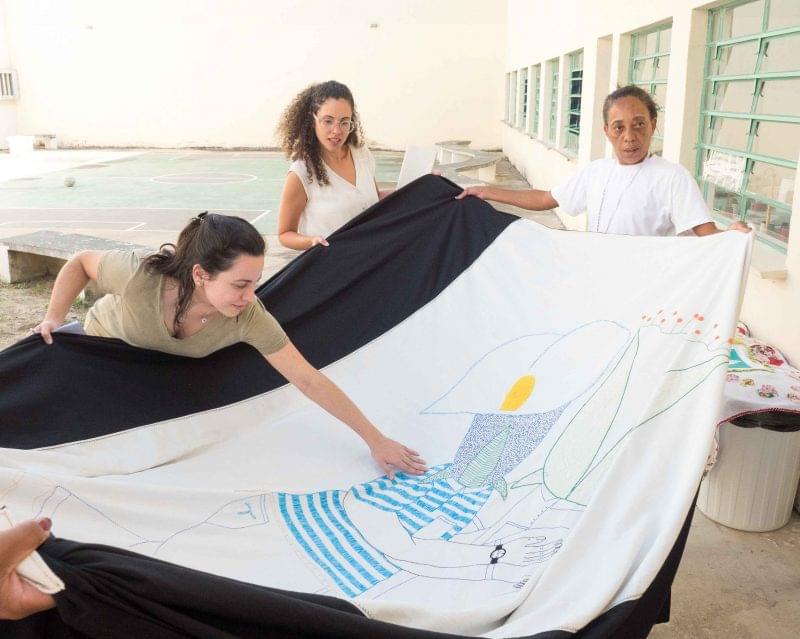In May, researchers from the Igarapé Institute visited the co-op developed by Humanitas360 at the Women’s Penitentiary II of Tremembé. The visit was part of the study about work opportunities in the prison system, specifically among female inmates. The objective of the study is to identify ongoing actions and projects “in order to increase female inmates’ access to professional training, work and income,” explains Dandara Tinoco, Communications and Research Officer at Igarapé. The model of Entrepreneurship Behind and Beyond Bars developed by H360 has, as one of its pillars, professional training for inmates to manage their own business and the co-op, even after they leave prison.
The increase in the number of incarcerated women in the last few years – a 656% increase between 2000 and 2016, in contrast with a 293% increase in the number of male inmates – exposes the need to look more closely at the issue. “Going to the co-op at the Women’s Prison II in Tremembé was very important for us to understand better the dynamics of the project and of the women involved,” said Dandara, “As we face the issue of lack of work opportunity for inmates and ex-inmates, thinking of alternatives such as cooperativism and entrepreneurship is crucial. They are models that, beyond expanding, they diversify the type of work these women have access to.” Currently, only 8.7% of incarcerated women work in activities that give them an income.
Work opportunities for inmates and ex-inmates have been studied by Igarapé for over a year. The research project started from conversations between the public and private sectors, and civil society organizations ignited by the material about the topic created by Igarapé to support the development of public policies for the State of Rio de Janeiro, where the institute is headquartered.
“We are continuing this approach this year, focusing on a couple of things. One of the issues is incarcerated women and ex-inmates. Our objective is to understand how the specifics of female imprisonment are linked to the issue of formal and autonomous work,” said Dandara. On March 8th of this year, on International Women’s Day, Igarapé launched an infographic of the research entitled “After Prison”: Possible Paths for Women.” The material included data from the studies published by the Integrated System of Prison Information of the Justice Department, the Santa Cabrini Foundation, the Public Defense and the Public Ministry of the State of Rio de Janeiro.





